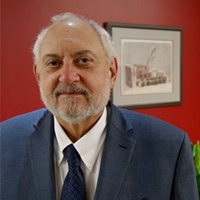Laval Estate Lawyer, Quebec
Not enough matches for Laval Estate lawyer.
Below are all Laval lawyers.
F. S. Liverman
✓ VERIFIEDAccident & Injury, Criminal, Divorce & Family Law, Estate, Real Estate
Trial Lawyer
F.S. Liverman, a member of the Bar since 1974, is a third generation lawyer whose grandfather started practicing in 1921. All were graduates of law a... (more)
Diane Lafond
Civil & Human Rights, Labor Law, Divorce & Family Law, Corporate, Contract
Diane Lafond Lawyer
Alexandre Franco
Real Estate, Business, Civil Rights, Construction
Status: In Good Standing Licensed: 25 Years
Nathalie Michaud
Family Law, Divorce, Children's Rights, Estate Planning
Status: In Good Standing Licensed: 35 Years
Louise Poliquin
Real Estate, Bankruptcy & Debt, Divorce & Family Law, Business
Status: In Good Standing Licensed: 32 Years
Daniel Cayer
Labor Law, Wills & Probate, Business, Business & Trade
Status: In Good Standing Licensed: 44 Years
Stéphane Guinta
Administrative Law, Pension & Benefits, Dispute Resolution, Environmental Law
Status: In Good Standing
Michel Laroche
Divorce & Family Law, Criminal, State Appellate Practice, Traffic
Status: In Good Standing Licensed: 15 Years



